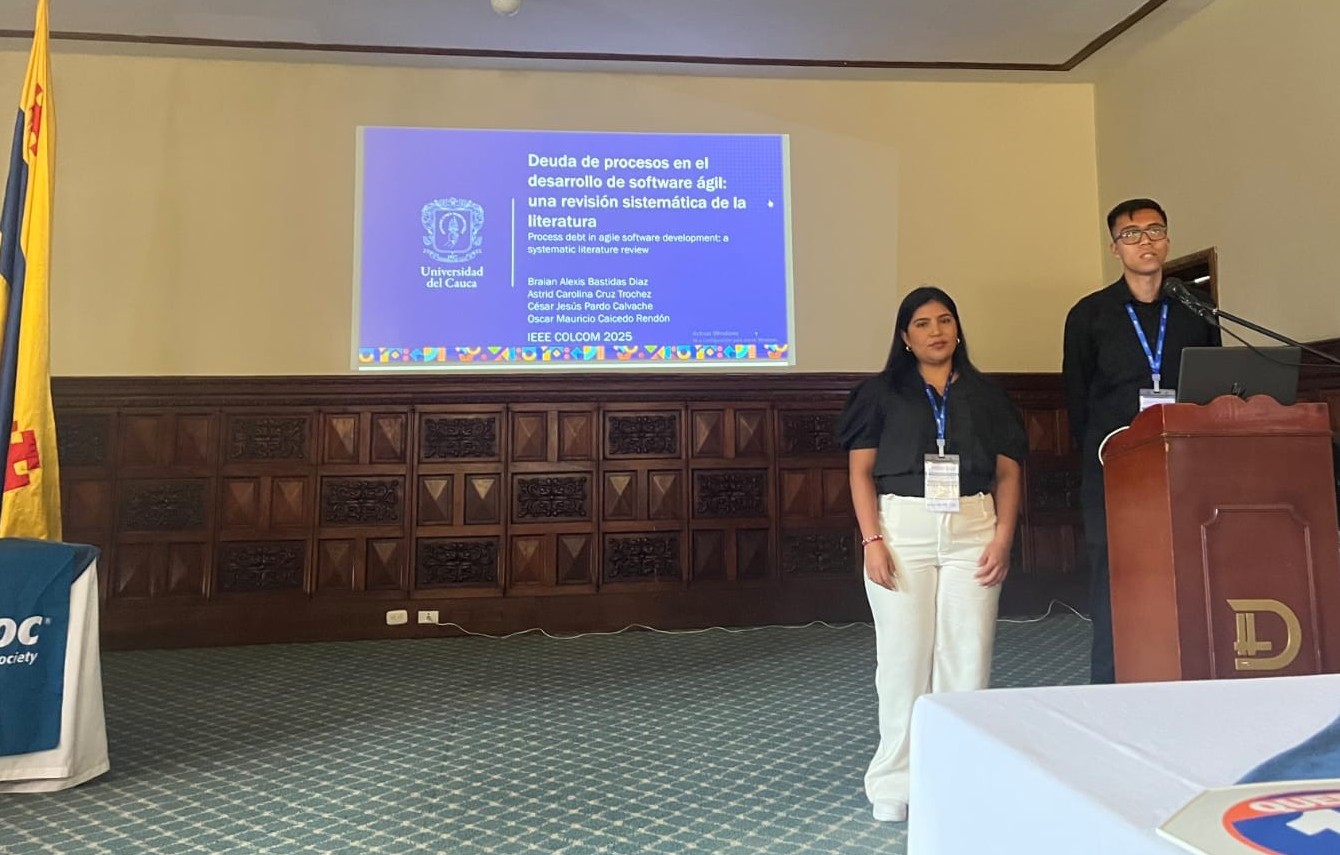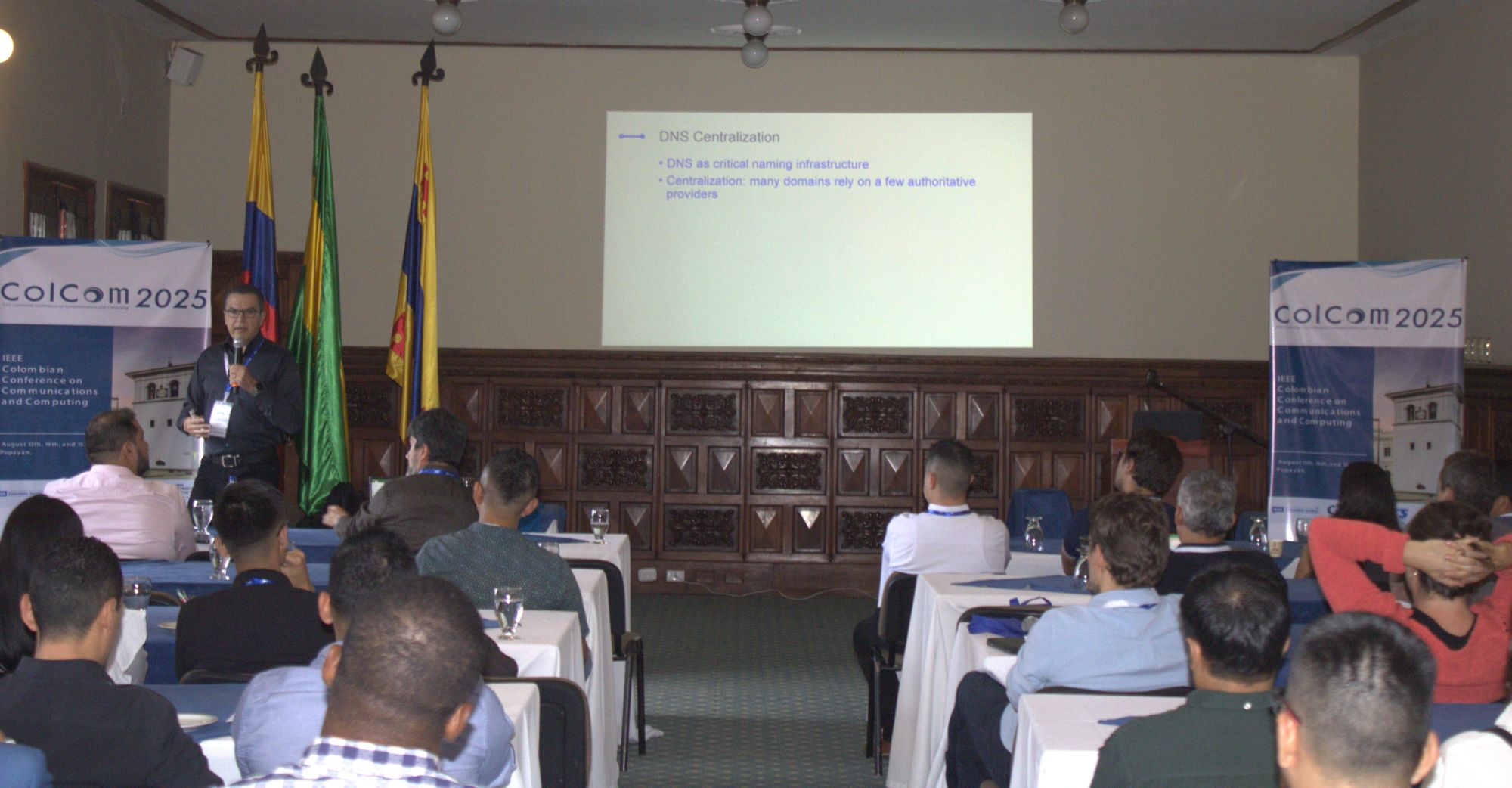News
Research on agile software development led by Unicauca students and professors is presented at IEEE COLCOM 2025
Astrid Carolina Cruz Tróchez and Braian Alexis Bastidas Díaz, Systems Engineering students, along with professors César Jesús Pardo Calvache and Óscar Mauricio Caicedo Rendón, presented the research work “Process Debt in Agile Software Development: A Systematic Literature Review.”
IEEE COLCOM 2025, held in the city of Popayán from August 13 to 15, is the most important event in the fields of telecommunications and computing. This year, speakers from Brazil, Canada, Germany, and Colombia participated.
Among them were the Systems Engineering students, Astrid Carolina Cruz Tróchez and Braian Alexis Bastidas Díaz, under the guidance of Professor César Jesús Pardo Calvache from the Department of Systems at Universidad del Cauca. All are members of the GTI research group.
The students of Universidad del Cauca participated as presenters of the article titled “Process Debt in Agile Software Development: A Systematic Literature Review,” which describes the preliminary results obtained as part of the research-based degree project led by Professor César Jesús Pardo Calvache, with the collaboration of Professor Óscar Mauricio Caicedo Rendón from the Department of Telematics.

Photo: Provided (from left to right: Astrid Carolina Cruz Trochez, Braian Alexis Bastidas Díaz).
The presentation by the students and professors provided a systematic literature review, analyzing proposals, approaches, and results related to process debt in agile software development. “According to Antonio Martini, process debt is the result of suboptimal process design, a deviation from an optimal process, or deficiencies in infrastructure that may be beneficial in the short term but can have negative long-term impacts for stakeholders in the process.” The study focuses on identifying benefits, challenges, causes, impacts, effects, and/or consequences of process debt, aiming to contribute to strategies for measuring, managing, and mitigating its effects in agile software development teams.
“Thanks to this analysis, it became evident that, although there is growing interest in the scientific community, the study of process debt has received less attention compared to other debts, such as technical debt. This opens a promising research field and motivates exploring new ways to apply the findings in practice, especially in agile environments where adaptability and software quality are crucial,” said Professor César Jesús Pardo Calvache.

Provided photo
It is also important to highlight that process debt is an emerging topic that has received little attention compared to other debts, like technical debt. “This means that significant research gaps still exist, particularly in identifying causes, impacts on productivity, and defining management strategies. The findings of this work show that process debt can compromise software quality and the efficiency of teams in agile environments, making it necessary to continue developing proposals that strengthen both theory and practice in this field,” added the professor.
The students and professors involved in this study acknowledge the support of Professor Alejandro Toledo Tovar, Dean of the Faculty of Electronic Engineering and Telecommunications, who supported the registration for the presentation of this article at IEEE COLCOM 2025.
The article accepted at COLCOM will be published in IEEE Xplore, ensuring academic visibility and impact for the work presented.
Written by: Communications Management Center


